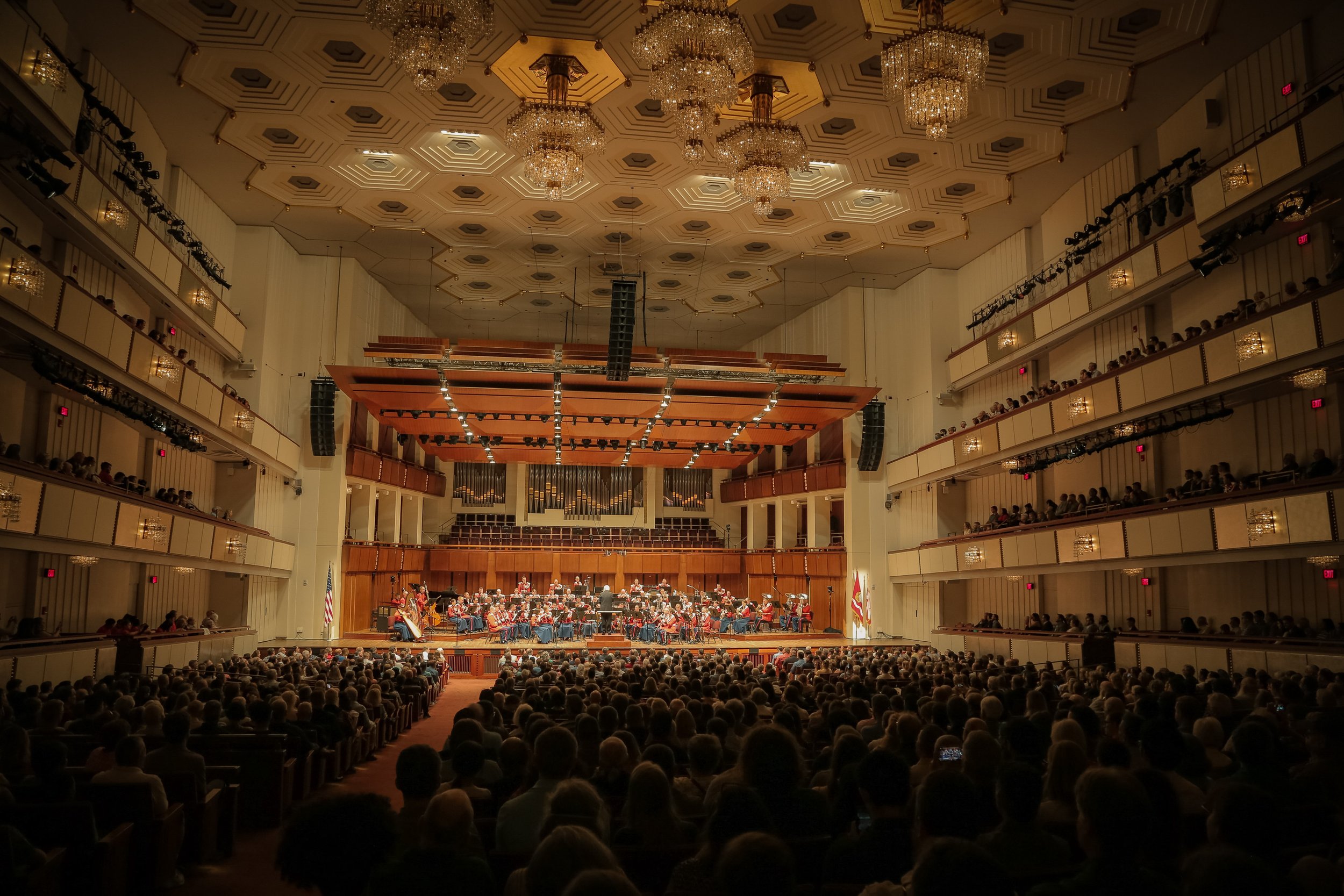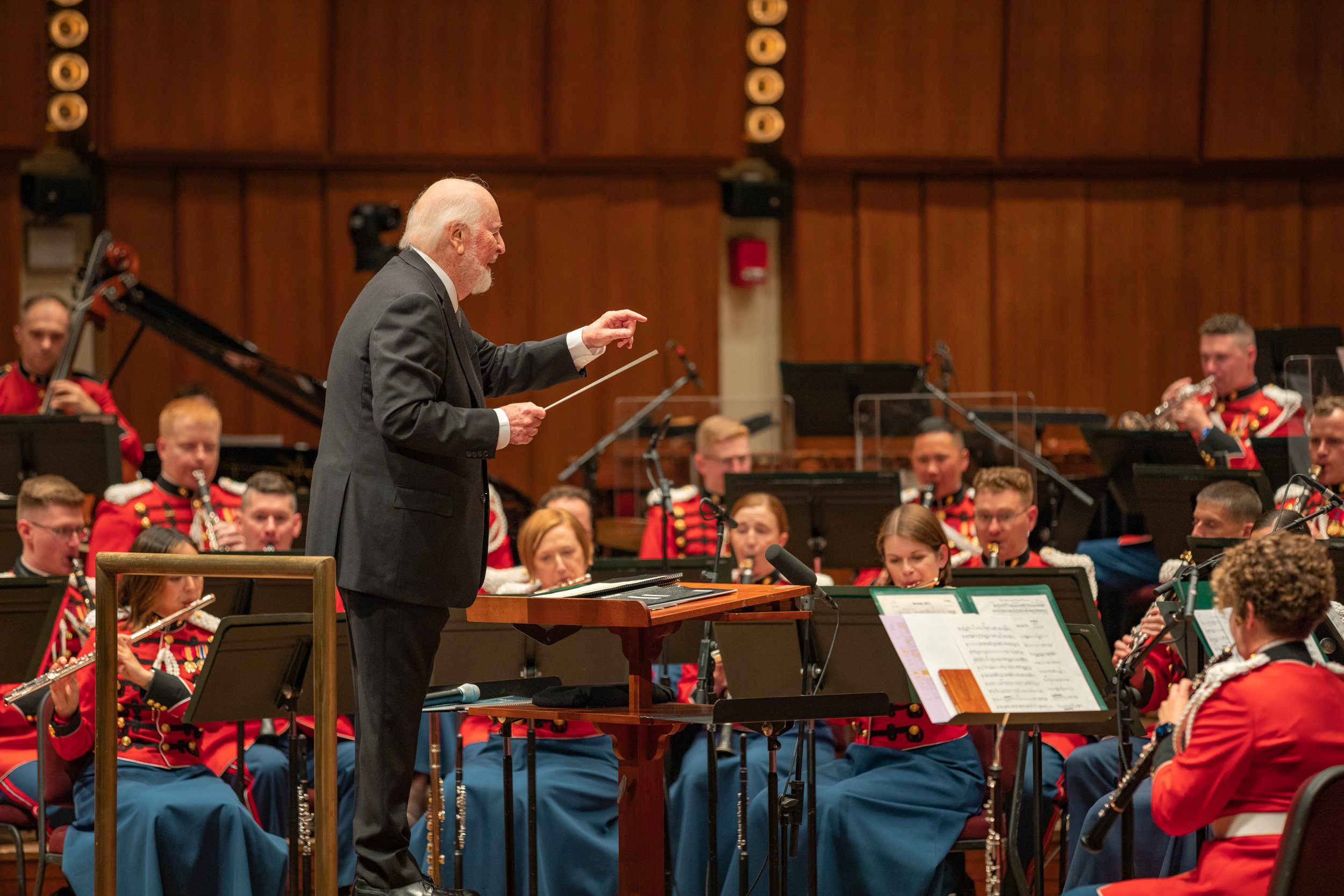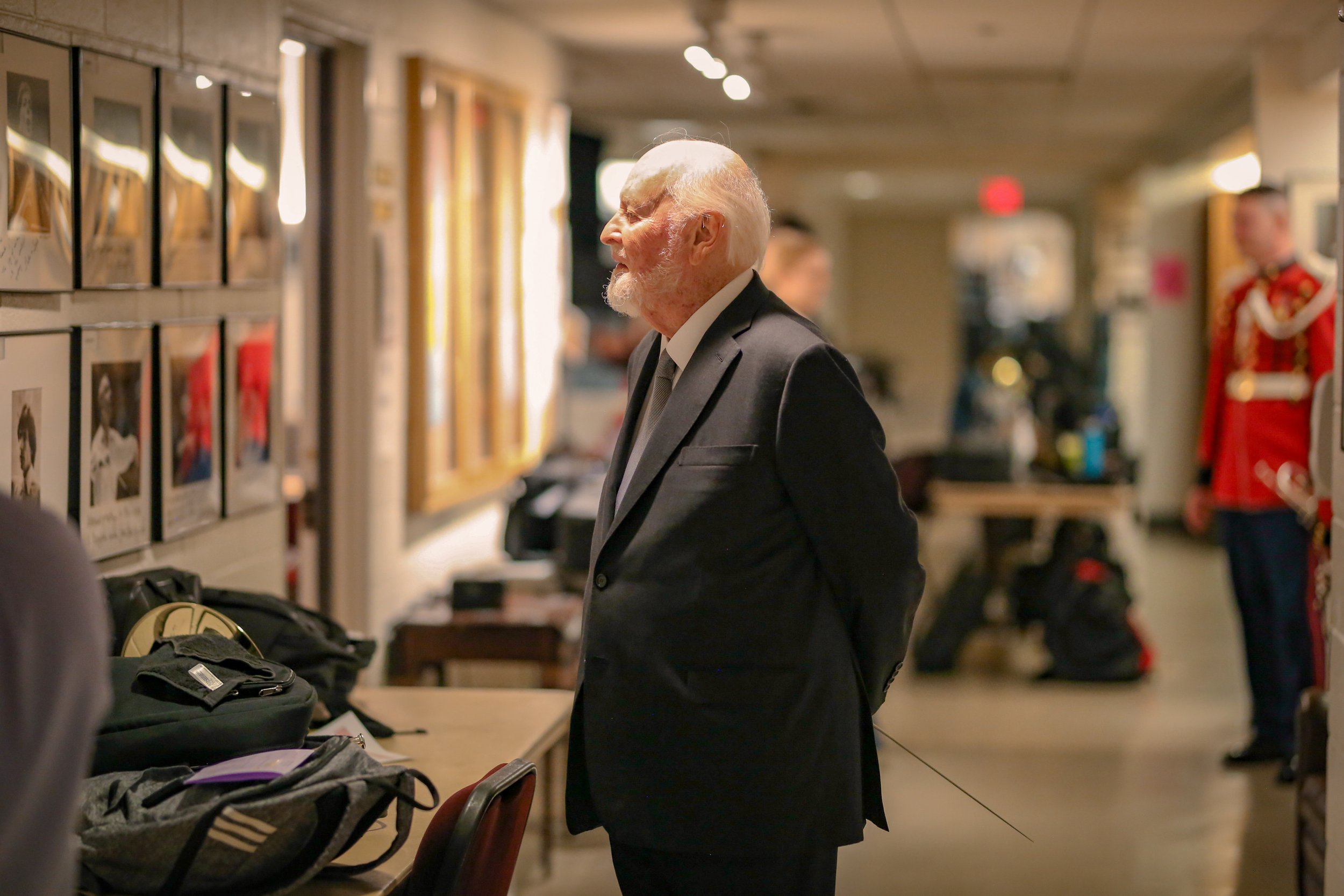On working well
I had the incredible opportunity to witness the legendary composer John Williams conduct 'The President’s Own’ United States Marine Band in some of his most memorable film scores. Star Wars. Indiana Jones. Schindler’s List. Harry Potter. E.T.
It was as epic as it sounds.
Photo Courtesy of the United States Marine Band
The concert was in celebration of The United States Marine Band’s 225th anniversary and was held in the beautiful Concert Hall at the John F. Kennedy Center for Performing Arts in Washington DC.
This event was nothing short of inspiring and a full circle moment for me. John Williams wrote the soundtrack of my childhood. And he completely changed the way I think about work.
Last year, the Associated Press published an article called “John Williams, 90, steps away from film, but not from music’”. [Spoiler alert, he changed his mind]. The article was so moving to me because what I saw when I read it was a person who found work that they loved so much they embraced it well into and through their entire life.
It completely shifted my paradigm.
I recently stumbled on an old HBR article by bestselling author Neil Pasricha called ‘Why Retirement is a Flawed Concept’. Pasricha unpacks the western concept of retirement - its history, where the idea came from - and contrasts it to the Japanese concept of ikigai, which Pasricha describes as meaning ‘the reason you wake up in the morning’ or ‘the thing that drives you most’. It turns out, he writes, that in Okinawa there is no word for retirement.
So, as I’m sitting at the concert watching this 91 year old musical legend conduct a collection of his greatest works - which by the way is truly fascinating, to be able to sit and listening to someone's work in one sitting is awe inspiring, I couldn’t help but think: ikigai. It's so evident that the joy John Williams has for music is still there, after a seventy year long career, it is tangible.
Photo Courtesy of The United States Marine Band
There is no doubt in my mind that John Williams has found his ikigai, and we’re all better for it.
And it made me wonder: What would it look like to pursue work that you love so much that you never really feel the need to retire from it?
Culturally, it's fair to say that most of us work because we have to, and to do anything more than that is a privilege. And it's true, we have to work to survive and many don’t have a lot of choice in what that looks like - something Barack Obama’s latest Netflix documentary ‘Working’ so beautifully highlights. But the hope, I think, is that we eventually shift from doing what we have to do, to doing what we want to do.
I started saving for retirement before I graduated from college and there’s definitely wisdom there. But with that, I began my career with my eye on retiring.
When I reflect on what I want out of my work - how do I want it to feel, how I define success, what do the next thirty years look like (because after all I’m supposed to retire at sixty-something right?) - John Williams comes to the forefront of my mind.
Photo Courtesy of the United States Marine Band
How much better would we be as a people if the thing we spend most of our time on brought this kind of joy? How much kinder would we be? How much healthier would we be? And not to mention, how much more astounding would the work we produce be?
It's a courageous, but worthwhile pursuit.
My reflections from the performance, in music as in life:
Transitions and bridges are as important as the main motif. They aren’t lulls; they are emphatically necessary, they carry the journey and they make the big moments all the more significant.
Sometimes you have to quiet the noise to fully appreciate the effort. John Williams made it a point to talk about one of the reasons he loves doing concerts—because they allow the listener to appreciate the music without the distraction of the film. He praised the United States Marine Band for sheer excellence in musicianship that his music demands and of which they so effortlessly delivered.
There is beauty in the details. Being able to hear several pieces of a composer's music in one sitting, and seeing it played live, allows you to appreciate the details and the consistency that has become that person’s thumbprint. And it's remarkable how some of the smallest roles, take the harp or the xylophone for example, are what make many of the pieces so magical. And these parts are usually played by just one person.
Photo Courtesy of the United States Marine Band
Thank you the United States Marine Band for making this event possible.



